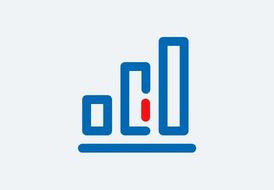Compliance instruments
Specific compliance instruments have been developed to protect DB Group, its employees and executives. This includes binding compliance regulations, risk and process analyses, a compliance reporting system, training and communication measures, and a whistle-blowing management system.
The DB Group Code of Conduct is the cornerstone of our CMS. It defines the standards and expectations about how our bodies, executives and employees should conduct themselves on a daily basis. It is supplemented by binding directives that specify applicable legal provisions governing national and international business and contact with customers. In 2021, the directives on the topics of benefits and the suspension of contractors were revised and adapted to the current legal framework.
Compliance risk analyses are a key component of DB Group risk management and are conducted by the business and service units. A Groupwide survey of compliance risks is conducted in accordance with governance requirements set by corporate management. The binding framework contains minimum requirements for planning, implementation, reporting and follow-up.
A compact compliance annual report provides the Management Board with information on compliance risks related to DB Group’s business activities. The report separately sets out the risk exposure of business units, service units and corporate management functions and highlights existing risk-reducing factors and countermeasures. In 2021, this was done on the basis of a revised compliance risk management model with enhanced consideration of risk scenarios for the first time. The Management Board is also kept regularly informed during the year about the further expansion of the compliance program and any significant compliance cases. The CCO also reports on compliance issues at meetings of the Supervisory Board’s Audit and Compliance Committee.
We are continually optimizing our instruments and consulting on compliance matters so that we can achieve our compliance goals on a sustainable basis. This is only possible if skilled compliance employees are appropriately qualified. In 2021, a dedicated learning area within the DB learning platform was developed and implemented together with the Compliance Academy to serve as a central instrument for the transfer of knowledge for all skilled compliance employees in order to keep them up to date on the latest developments in the field. Additional modules were developed and rolled out for the training program designed in 2020. The training program is directed primarily at Top-Management within DB Group, and supplements the well-established compliance coaching run by the heads of the Group’s Compliance, Audit and Legal functions.
The compliance awareness plan takes a risk and needs-based approach, which determines the order in which all executives and employees are to be trained. By holding in-person events or conducting e-learning sessions, it is possible to train almost all managers and employees who either need to be trained or are exposed to medium and high risk, over a period of two to two and a half years. In 2021 alone, some 36,000 executives and employees attended events with instructors on the subject of preventing corruption. E-learning modules were also extensively used. Together with the e-learning modules developed specifically for DB Schenker and DB Arriva, about 112,000 e-learning units on preventing corruption were completed.
There is a Group-wide whistle-blower system to obtain information about potential violations of laws or internal regulations. The way in which submitted tip-offs are handled is regulated in detail. The processes implemented protect the whistle-blowers. The interests of the persons concerned are taken into account, among other things, through clearly defined requirements regarding the conclusiveness and relevance of a tip-of.
There are various ways of submitting a tip-off. These include three trusted legal practitioners, who are legally bound to secrecy, in addition to the compliance teams in the corporate management, business units and service units. There is also a Group-wide electronic whistle-blower system, which makes it possible to submit tip-offs anonymously. It can be used in 22 languages and is available not just to employees, but also customers, suppliers and other stakeholders. In 2021, tip-offs in the double-digit range were received through the whistle-blower system for instances of corruption.



